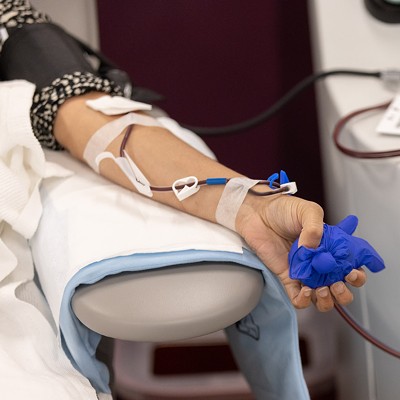The Santa Maria Police Department (SMPD) reported nine citations and one arrest that resulted from the department’s Alcoholic Beverage Control enforcement operation on Oct. 28.
The Central Coast Collaborative on Homelessness (C3H) had a staff member tag along on the mission.
During the operation, funded by the California Department of Alcoholic Beverage Control Grant Assistance Program, officers patrolled areas around 10 businesses with Alcoholic Beverage Control licenses, according to an SMPD press release. The goal of the operation was to prevent loitering, the sale of alcohol to minors, and open alcoholic containers, according to Andrea Cabanas of Santa Maria C3H.
SMPD cited several individuals for illegal camping, possession of a shopping cart, and open containers, according to the department, and arrested one suspect for providing false identification, possession of methamphetamine, and an active arrest warrant. As police worked, Cabanas said, the C3H employee was able to contact several chronically homeless individuals and offer a variety of supportive services.
C3H is an alliance of government agencies and nonprofits working together to reduce homelessness and its impacts on the Central Coast. Cabanas said the group meets with homeless individuals frequently, offering links to legal and medical help, addiction treatment, and affordable housing. C3H’s mission during the Oct. 28 operation was to meet new homeless individuals who had not been contacted by C3H previously. C3H met with 15 new people that night, many of whom were Spanish speaking. SMPD officers translated for the nonprofit’s staffer.
“[The police] wanted one of us to go to do some outreach with people who sleep around the liquor stores,” Cabanas said. “So it starts a relationship with people, and sometimes they just don’t know who to talk to or where to go.”
Cabanas said that while police do have a job to do, to enforce the law, bringing along a C3H member helped bring real support services to many of the people who are frequently cited, which could in turn prevent similar citations in the future.
“At the end of the day everybody is human, and everybody needs their basic needs met: clothes, food, shelter. Once you get people those and they see something is going good, they’re more apt to be productive,” Cabanas said. “Police don’t have the time to list all the resources for people and hold their hands. So we’re trying to get an ongoing thing where we can go on these ride-alongs.”
Aside from simply building a relationship with newly identified homeless individuals, Cabanas said C3H was also able to evaluate them through a vulnerability assessment, which tests how likely a person is to die on the streets.
Based on those evaluations, C3H has identified the 10 most vulnerable homeless people in Santa Maria and is working to find them homes. The project, 10 Now Santa Maria, is being funded by $27,500 from the city and $76,000 from Dignity Health, according to C3H Executive Director Chuck Flacks. Housing vouchers from the county will fund rent at the to-be-selected homes, Flacks said.
Local police departments play a major role in helping C3H identify the most in-need people, Flacks said, because police typically have the most data and are often the first responders to mental health and other crisis situations. Flacks said a strategy called “restorative policing,” which involves the police and other government agencies, has helped hundreds of formerly homeless individuals in Santa Barbara.
A reduction in homelessness helps government agencies, Flacks said, because most homeless individuals can’t afford to pay citations, and resulting jail time costs the government money.
In an emailed response to a community member’s critique of C3H’s recent collaboration with police, Flacks wrote, “… we support the police taking action when there is illegal, violent, disruptive, or dangerous behavior. The police have saved the lives of hundreds of homeless people, while also punishing hundreds more for misdeeds. We do our best to work in partnership with them.”








